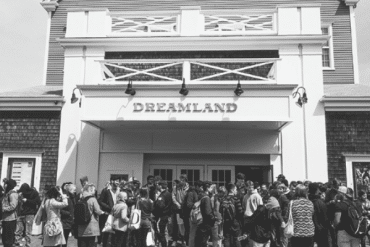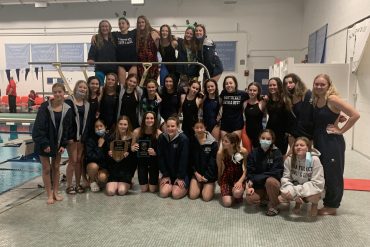The H-2B visa shortage is having serious consequences on the Island economy.
 A quiet crisis is playing out behind the scenes on Nantucket this summer, in the island’s commercial kitchens and in the backrooms of its hotels and inns. The frenzy of the peak season returned this year as it always does, but the backbone of the island’s seasonal economy workforce did not. Hundreds, perhaps more than a thousand, of the guest workers from around the globe who spend their summers on Nantucket toiling over hot stoves, cleaning bathrooms and bedrooms, greeting guests and generally serving as the engine of island’s hospitality industry were unable to return.
A quiet crisis is playing out behind the scenes on Nantucket this summer, in the island’s commercial kitchens and in the backrooms of its hotels and inns. The frenzy of the peak season returned this year as it always does, but the backbone of the island’s seasonal economy workforce did not. Hundreds, perhaps more than a thousand, of the guest workers from around the globe who spend their summers on Nantucket toiling over hot stoves, cleaning bathrooms and bedrooms, greeting guests and generally serving as the engine of island’s hospitality industry were unable to return.
The failure of the federal government to increase the number of H-2B visas granted to these guest workers has had a ripple effect across the country, especially in locations with seasonal economies like Nantucket. The visa shortage means longtime employees at dozens of island businesses, including many who had been coming for years and even decades, were barred from the country. The fallout has sent island restaurants, inns, hotels, and other establishments in the hospitality sector scrambling to meet their staffing demands, and in some cases forcing painful compromises.
At the beloved Downy Flake restaurant on Sparks Avenue, for instance, the doors were closed nearly every Wednesday in May and June. “We remain short-staffed in our Kitchen, due to the failure of our government to reinstate the Returning Workers’ Exemption & our inability to find US workers to replace them,” the Downy Flake posted on its Facebook page on June 13. “We have been working on resolving the situation since October of 2016. Our Kitchen staff on hand have been working 6 days a week. We are pacing the troops. However, we will go to war with the army we have beginning next week. In the meantime thank you for your patience.”
 Angela Raynor, the co-owner of the downtown restaurants The Boarding House and The Pearl, says the visa shortage is affecting Nantucket “on every level of hospitality.” The unintended consequences, she says, have yet to be reckoned. “We have team members [who are impacted by the visa shortage] who are now like family, they have been with us for eighteen years,” Raynor says. “They are fully vetted, pay taxes, and the real kicker, do not use government services. We are all trying to figure out how to be open seven nights next week. Many restaurants and businesses may be unable to make the Nantucket equation work. We have ten weeks. None of this makes sense.”
Angela Raynor, the co-owner of the downtown restaurants The Boarding House and The Pearl, says the visa shortage is affecting Nantucket “on every level of hospitality.” The unintended consequences, she says, have yet to be reckoned. “We have team members [who are impacted by the visa shortage] who are now like family, they have been with us for eighteen years,” Raynor says. “They are fully vetted, pay taxes, and the real kicker, do not use government services. We are all trying to figure out how to be open seven nights next week. Many restaurants and businesses may be unable to make the Nantucket equation work. We have ten weeks. None of this makes sense.”
At a mid-island lodging establishment, longtime innkeeper Scott Thomas was cleaning the pool himself, running the business’s social media accounts, and his administrative assistant was filling in as his front desk manager. The bar inside the inn, which is normally open every night of the week, is only open on weekends. With fifteen unfilled positions due to the H-2B visa shortage, Thomas and his existing staff are all working more hours and wearing more than one hat.
“The good thing is you won’t see it in your experience on Nantucket,” Thomas says. “The comments we’ve had from our guests have all been positive, and I don’t think people have noticed that we’re short staffed. But we’re all doing stuff behind the scenes. I’m also paying a ton in overtime as everyone is working extra hours, including all my managers. People are burnt out.”
The H-2B visa program, which allows citizens of other countries to work seasonally in the US, seems to have become a victim of the toxic political climate in Washington, DC this year. Early in 2017, Congress failed to reauthorize an exemption that would have made returning H-2B visa holders not count against the cap of 66,000 guest workers. The inaction set off alarm bells on Nantucket, but there seemed to be a resolution on the horizon, as there had been in years past. In early May, lawmakers authorized nearly doubling the number of H-2B workers to 130,000 visas, but punted the final decision to the Department of Homeland Security, which failed to approve the increase.
 What should have been viewed as a relatively simple fix for a small business problem came to be perceived as an immigration issue under the Trump administration, according to Thomas and others involved in efforts to have the cap increased. “I would say it’s very much being influenced by the [Trump] administration’s position on hiring Americans,” says Thomas.
What should have been viewed as a relatively simple fix for a small business problem came to be perceived as an immigration issue under the Trump administration, according to Thomas and others involved in efforts to have the cap increased. “I would say it’s very much being influenced by the [Trump] administration’s position on hiring Americans,” says Thomas.
Under the federal government’s H-2B visa program, guest workers have performed the type of jobs Americans generally don’t want to do. Businesses are only allowed to hire seasonal employees from out of the country if they can demonstrate to the Department of Labor that they have made a good faith effort to hire American workers through advertising and other means. But in the thirty years of participating in the H-2B program, Thomas says his inn has received less than a dozen applications from American workers seeking one of the seasonal positions he has advertised. “And most of them, once you contact them and send an application form back, you never hear from them again,” he says.
Nantucket Island Resorts (NIR) is among the largest employers on the island, and was one of the businesses hardest hit by the inaction in Washington on the H-2B situation. With its sprawling footprint across Nantucket’s lodging, dining, and retail establishments, NIR typically hires 130 guest workers for the season, and this year a total of forty-five employees were unable to return. Among them were longtime seasonal staffers who had been with NIR for ten, fifteen, and even twenty years or more.
“Those forty-five are an amazing group of people who are part of what makes this company and our reputation,” says Khaled Hashem, NIR’s managing director. “Guests come here and expect to see them.”
 The longtime NIR workers who were unable to return this year all received letters from the company as well as gift cards, Hashem says. But those things won’t replace a summer’s worth of income on Nantucket, he says. “The people who are impacted the most by this are those who are not coming back,” Hashem says. “They are not going to have an income this year. They’re fantastic people, they have the expertise, and this is their livelihood.”
The longtime NIR workers who were unable to return this year all received letters from the company as well as gift cards, Hashem says. But those things won’t replace a summer’s worth of income on Nantucket, he says. “The people who are impacted the most by this are those who are not coming back,” Hashem says. “They are not going to have an income this year. They’re fantastic people, they have the expertise, and this is their livelihood.”
One of those workers was Rhona Logan-Osbourne, who had worked with NIR on the island for the past three years at The Wauwinet. In an e-mail sent from her home in Jamaica, Logan-Osbourne wrote that she loved her job on Nantucket, and vowed to return despite the uncertainty surrounding the H-2B visa program. “I am so sorry for not getting the chance to be with the company this season,” Logan-Osbourne said. “Being in Nantucket, it’s like a home away from home. I worked at the Wauwinet and I always have a smile.”
And while NIR was sharply impacted by the shortage of guest workers, it was also uniquely positioned to meet the challenge and possessed distinct advantages that many of the island’s smaller businesses did not. Tapping into its extensive network of seasonal employees, recruiters, and partners in the hospitality industry — namely ski resorts — Hashem and his team immediately went to work to fill the gap.
“We have amazing, healthy relationships all across the country, and they referred people to us who were already in-country,” Hashem explains. Even so, he adds, approximately 75 percent of NIR’s seasonal employees come back every year under the H-2B visa program and have institutional knowledge of the company’s operations and its customers. “How do you replace that overnight?” he asks “That’s the tough part.”






